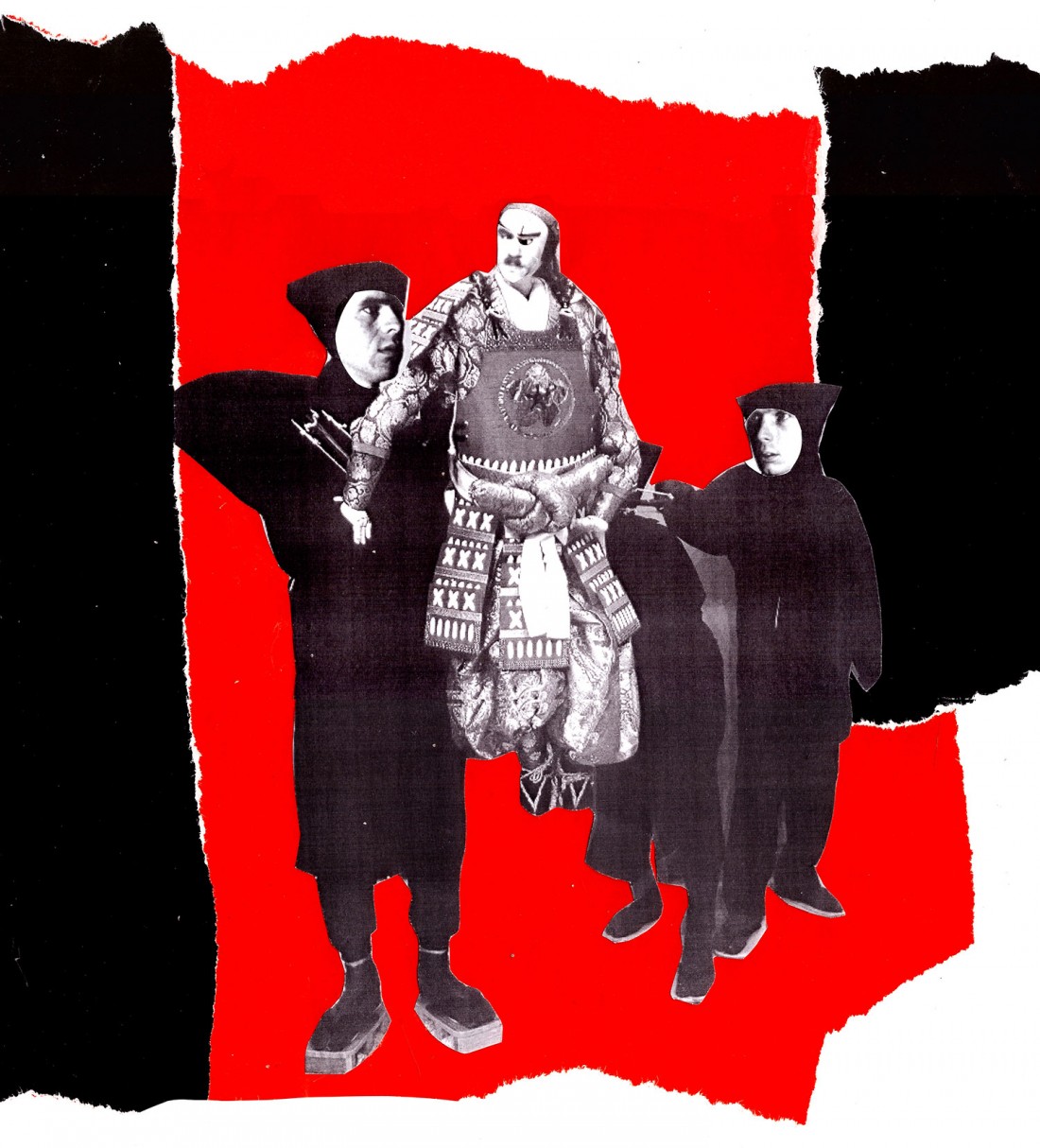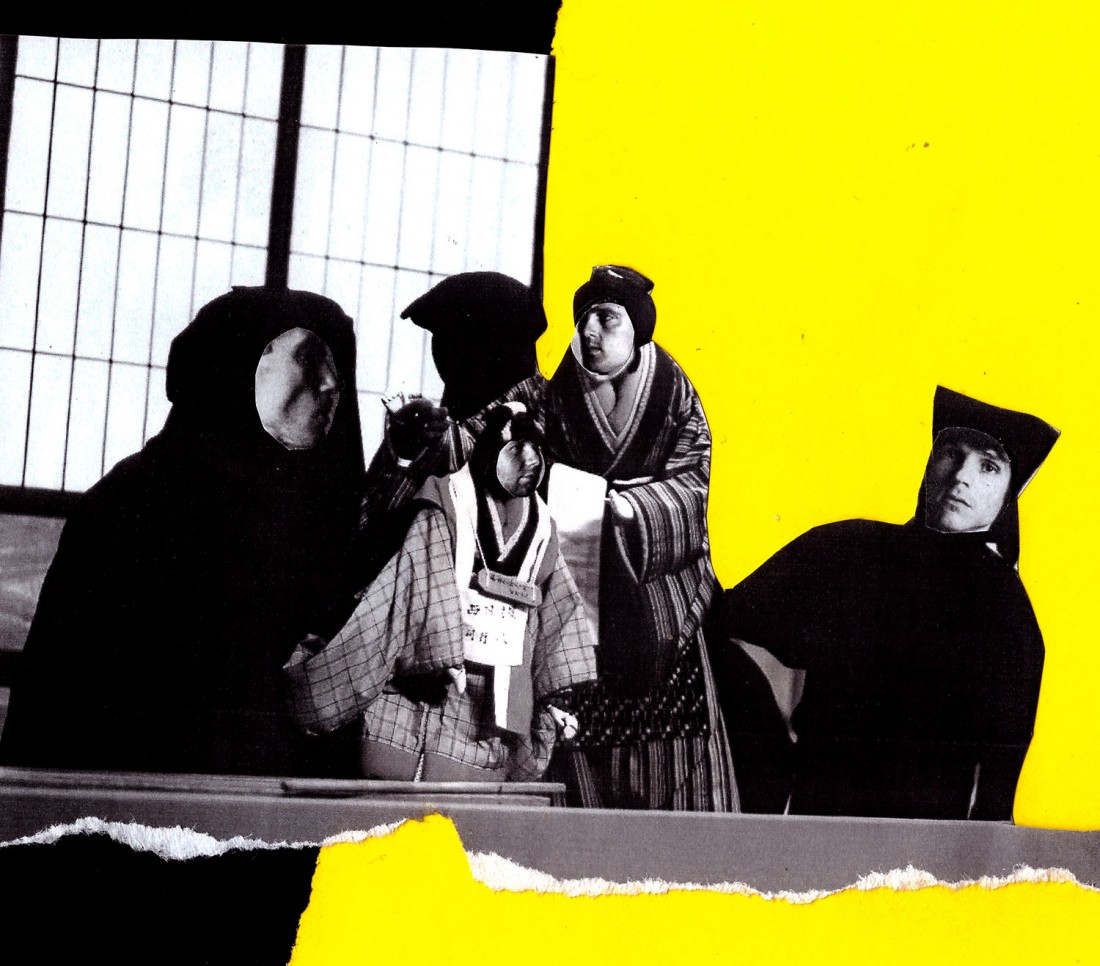Sharing the limelight
Listening to Sparks for the very first time was, I recall, an irritating musical encounter. A CD that played at the seemingly wrong speed was a complete novelty. Was the singer Amanda Lear in reverse? The music seemed to be somersaulting like a car in a car crash. Was it supposed to sound like that?
Today’s digital archives reveal so much about the 1970s. Ron Mael’s motionless eyes and John Lennon’s exclaiming “Blimey – Hitler’s on the telly!” reconsidered from a distance of forty years convey the impression that pop music back then had to be larger than life instead of just as average and boring as you and me. You find this intention to transcend everyday life in Mael’s lyrics which always displayed a tendency to the grotesque in their ironic and absurd ways, contrasting the singer/songwriter’s melancholia of those days with hilarious ease. The line “I’m gonna hang myself from the family tree” (taken from “In My Family” by Kimono My House – which is by the way the album mentioned in the beginning that I really enjoy listening to nowadays) alone ought to be capable of nipping any sort of suicidal thought in the bud.
Franz Ferdinand are benefiting from this very ambiguity these days. When Alex Kapranos found himself wandering around L.A. looking for a dentist he accidentally bumped into Sparks. There’s a big hello since they have known each other for about ten years and they decide that it is about time to realise the idea of a common album that had been conceived a good while ago. What’s more to know about the exact circumstances of how and why this collaboration came about and the result of it that goes by the name of “FFS” can be seen in the following video-interview that Roman Szczesny and I did with Ron Mael of Sparks and Bob Hardy of Franz Ferdinand right before they took to the stage in Cologne:
One of the first few big pieces written about Franz Ferdinand saw them being interviewed by Morrissey for NME sometime in 2004. The “former lead singer of The Smiths” asked the much celebrated newcomers whether they listened to a lot of Sparks. An incredibly focused and attentive listener – and a listener that was pretty proud of himself and his findings. In his conversation with me, Ron Mael confirms the similarities between Sparks and Franz Ferdinand, which is why Morrisey must have been right. “FFS” are the living proof of it.
The big question of the evening: how will the album do in the context of a live concert? Surely it’s not too far-fetched to assume that deep down inside Russell Mael is a traditional diva who might struggle to share the limelight? Is it possible to share the limelight equally? A few potential answers could be as follows:
- Franz Ferdinand’s Alex Kapranos raising his arms and drawing them back in slowly as a signal to the audience to move more frenetically. The singer hereby advances in this new role to a sort of holiday entertainer who strives to direct his audience as if he was working on a cruise ship.
• Which is actually not that far off as FFS’ s music could certainly be described as being very energetic. It would be fair enough to ascribe this fact to Sparks who manage to get FF to be act their very silliest. In fact Alex and guitarist Nick McCarthy (who sings one of the best FFS tracks “Things I won’t get”) both wear incredibly silly red striped trousers. They never used to do stuff like that. Certainly an achievement on the part of FF if one was short-sighted enough to mistake them for indie-squares who managed to record some alright songs.
• Faced with the immediate sardonic manner in which Ron and Russell Mael run around and act like big children, FF manage to present themselves in fine form by showing to the world a sillier version of themselves and thereby finding their inner spiritual equilibrium.
- In the middle is just where the two bands that FFS is made up of meet, which means that both bands have to contribute equally as they meet each other half way. It seems very appropriate that Russell Mael and Alex Kapranos are pretty much singing to each other as they perform together, which heightens the interactive component there is to their show. What they do is communicate symmetrically in different keys. FFS are having a blast on stage and both of their singers are eagerly making theatrical gestures somewhere between choreography and spontaneity.
- The symbiosis of Sparks and Franz Ferdinand provokes the most fundamental questions such as whether Alex Kapranos will still be rocking asymmetrical ponchos in twenty year’s time.
- As a supergroup FFS are mutually colonising each other’s act – both bands lose and win to an equal degree. Their collaboration is as much about connection as disconnection. Sparks may lose a few points concerning their artificiality which they have traded in favour of the stability a rock band provides and Franz Ferdinand lose a little bit of their normality as they come across more glamorous.
- But is the audience even aware of that? Old and young react rather cautiously to monumental Sparks classics such as “Number One-Song in Heaven” or “This Town Ain’t Big Enough For The Both Of Us” – a reaction that Alex as master of ceremony manages to rectify by using his grand gestures to direct the audience as described above. Naturally the big Sparks-hits are all presented in rather ambitious versions geared at getting the audience going.
- “When Do I Get To Sing ‘My Way’” is possibly the only song in which Frank Sinatra meets Sid Vicious. When Sparks performed said track on MTV “Most Wanted” in the 90s, the second track they performed there was a rudimentary version of the then relevant Whigfield-hit “Saturday Night” – a strategic decision for trashy pop. A decision whose symbolic significance continues to have an effect up until the present day. Certainly one of those moments on TV that you remember forever. Have Sparks replaced Whigfield with Franz Ferdinand?
- “Saturday Night” would then be “Take Me Out”, which is kind of accurate if you keep your ears covered. During the gig the “stomping”-quality there is to the song really showed. The audience was in fact encouraged to jump up and down ferociously and the majority of people there happily obliged. And in fact this movement accurately sums up what exactly there is to FFS: the actually mutually exclusive attitudes of having one’s head in the clouds and being down to earth.
Cynics regard FFS as a mere strategy for Sparks to try and appeal to younger audiences so that a potential new album, which has secretly already been completed, would sell well. Pretty sad if you give it some thought. But probably not far off the truth. Until then we shall remain closed off in our air-conditioned ivory tower, listening to the album that has come out of this collaboration for purposes of spiritual and moral edification, the album that goes by the absurd name of – just a sec, I have to look it up again – FFS.
(Translation: Tanita Sauf)
Collage: Sarah Szczesny

















